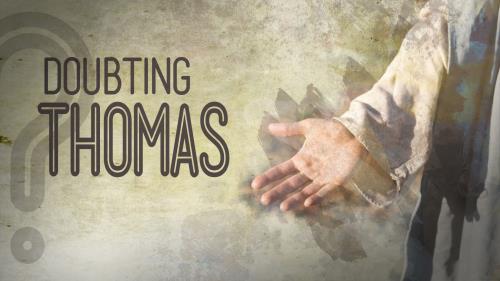-
I Am The Bread Of Life
Contributed by Mark A. Barber on Jul 30, 2018 (message contributor)
Summary: This is the first of 7 I AM statements in the gospel? What does this mean.
I AM the Bread of Life
John 6:22-51
There are seven I AM statements in the Gospel of John which have predicates which describe something about Jesus. There are also several occurrences of the I AM without a predicate. The way the statement is made in Greek, as it is not grammatically necessary to include to pronoun “ego” as “eimi” means “I am” by itself. By using the emphatic “I AM,” Jesus is echoing Exodus 3:14 where Yahweh names Himself to Moses at the burning bush as “I AM that I AM.” This means that Jesus is making a divine claim for Himself as He is describing Himself as the Yahweh of the Old Testament. The wilderness context of the previous passage where Jesus feeds 5000 men there says that the same Yahweh who brought the manna down from heaven to the Children of Israel is the same one who stood before the crowd and performed the miracle of blessing of a few loaves and fish which fed them all. The leftovers were even greater than what was originally brought.
After the miracle of the 5000, Jesus had sent his disciples away so that they would not be infected with the enthusiasm of the crowd who wanted to arrest Jesus and make Him king. The disciples got held up crossing by the wind and Jesus walked out on the water to meet them. They were of course frightened, but Jesus cheers them up with the words “Be of good cheer. I AM.” The crowds came over to join Jesus on small boats, although Mark indicates others had run on land ahead of the boat when they had crossed over. The crowd gathered together to hear Jesus.
When Jesus started to teach them, He was at the peak of His earthly popularity. By the time Jesus was finished, He would lose most all of them. Here was a man with thousands of followers who was about to be unfriended by them. Jesus knew their hearts. He starts by telling them of their motivation for following Him. They were following Him for what they could get from Him and not out of proper motivation. They had completely missed the sign. All they were concerned about was getting their bellies filled. That bread could only satisfy one’s hunger for a little while. What they really needed was the eternal bread from heaven.
The crowd seemed interested in doing the works of God and asked what they could do. They had seemed unsatisfied with Jesus’ answer to simply believe in Him. They demanded a sign for Jesus to prove who He was. Was not the sign of the feeding of the 5000 in the wilderness enough. They always wanted more. The last sign never satisfied the Children of Israel in the wilderness either. It is the proverbial “What have you done for us lately?” They reminded Jesus that Moses had provided them manna in the wilderness. That claimed for Moses what was really the work of Yahweh. Did Moses really rain bread from heaven upon them? Was not Moses merely the mouthpiece for Yahweh who was the one who rained down the bread? So even in their asking this question, they asked amiss. Jesus reminds them of this truth.
The Father who sent Jesus wanted to give more than just earthly manna. He wanted to give the Children of Israel living bread, which if one ate, they would live forever. This is similar to John 4 where Jesus tells the Samaritan woman that He wanted to give her living water. Earthly water would slake thirst of the body, but Jesus was offering something which would satisfy the thirst of the soul. Jesus in His temptation in the wilderness was told by Satan to turn the rocks into earthly bread to satisfy His hunger. This Jesus has refused to do, quoting Deuteronomy which was spoken by Yahweh to Moses to commit to writing: “Man shall not live by bread alone, but by every word which proceeds from the mouth of Yahweh.” Jesus consistently put the value of His teaching above that of performing miracles. The miracles were not ends in themselves. They were signs intended to point men to Himself.
Jesus now says that He Himself is the promised bread who would come down from heaven from the Father. The manna was only an earthly type and sign of this reality. The bread they had just eaten in the wilderness was a sign to this as well. If only the hunger in their bellies had led to their noticing that their own souls were starving. But earthly people are satisfied with earthly sustenance and disregard the greater importance of their eternal destiny. We see this in the Gospel of Mark where the man asks Jesus that if He were willing, He could cleanse him.” This Jesus did, but once the man was healed of his earthly malady, Jesus actually gets cross with the man and throws hi out. He tells him to go see the priests, a command he disobeys. The man had leprosy of the heart as well as body. But he was only interested in his physical malady. He did not care about obedience, which is the fruit of living faith in God.

 Sermon Central
Sermon Central



